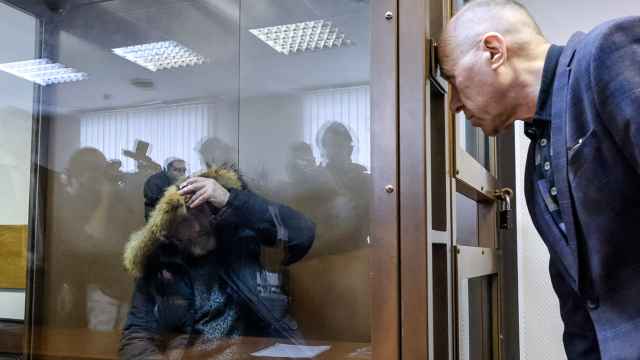The long-awaited amnesty plan for economic crimes was submitted to the State Duma on Tuesday after its revised version was approved by President Vladimir Putin.
The first large-scale amnesty in years was seen as a victory for business ombudsman Boris Titov, though it has been criticized as insufficient.
Titov thanked Putin for supporting the amnesty, saying the president had taken a "risk" since this decision might not be favored by most of the population. He was referring to opinion polls according to which only a third of Russians support an amnesty for businesspeople.
"Most decisions being made today are ones supported by the majority. The president is taking a risk, and this a serious step," Titov said at a panel on amnesty Tuesday.
Andrei Nazarov, a State Duma deputy representing United Russia, said the amnesty would cover about 100,000 people, but most of them would be those who had already served their sentence or were on probation. Only 11,000 of them are behind bars, representatives of the Delovaya Rossiya lobbying group said.
Two bills on the amnesty were submitted to the lower house of parliament by its speaker, Sergei Naryshkin, and will be considered by deputies next week before the summer recess.
The new version of the plan, to which Putin has given his blessing, will apply the amnesty to 30 articles, including fraud, embezzlement, illegal banking activity and money laundering.
Putin said during the St. Petersburg International Economic Forum last week that the amnesty would apply to first-time offenders who had paid compensation to their victims or were willing to do so.
This provision has been criticized by human rights activists and lawyers who said law enforcement authorities had fabricated cases against many businesspeople. But Nazarov said he would omit this clause from the law and called the final draft a "compromise" between business and authorities.
Titov said that any decisions on damages would be based on a court ruling. He said most criminal cases had been opened against businesspeople without any claims from victims.
Sergei Nikulin, a senior official at the Prosecutor General's Office said the amnesty should be "broader" and cover such inmates as teenagers and women.
"Businessmen are not the most oppressed category of the population," he said.
His position was indirectly supported by prominent lawyer Timofei Gridnev, who said it was "immoral" to declare an amnesty for just one social group.
"Amnesty is an act of the state's mercy toward its citizens and not only to one part of it," he told The Moscow Times. He also called for a broader amnesty for different categories of inmates.
It is still unclear if the amnesty will concern Yukos founder Mikhail Khodorkovsky and his business partner Platon Lebedev. Both of them are to be released from prison in 2014.
Contact the author at [email protected]
A Message from The Moscow Times:
Dear readers,
We are facing unprecedented challenges. Russia's Prosecutor General's Office has designated The Moscow Times as an "undesirable" organization, criminalizing our work and putting our staff at risk of prosecution. This follows our earlier unjust labeling as a "foreign agent."
These actions are direct attempts to silence independent journalism in Russia. The authorities claim our work "discredits the decisions of the Russian leadership." We see things differently: we strive to provide accurate, unbiased reporting on Russia.
We, the journalists of The Moscow Times, refuse to be silenced. But to continue our work, we need your help.
Your support, no matter how small, makes a world of difference. If you can, please support us monthly starting from just $2. It's quick to set up, and every contribution makes a significant impact.
By supporting The Moscow Times, you're defending open, independent journalism in the face of repression. Thank you for standing with us.
Remind me later.





